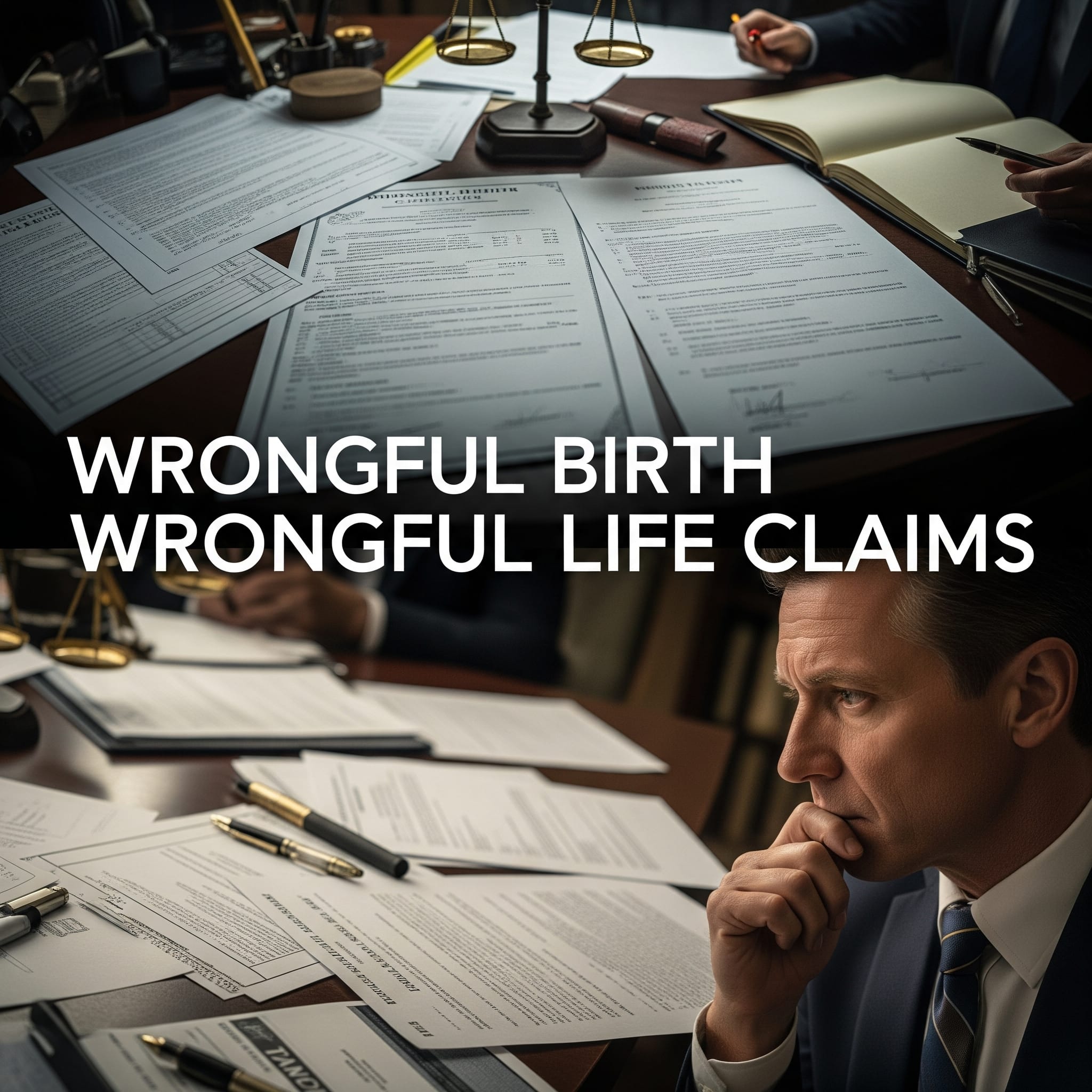In the emotionally charged realm of birth-related litigation, families may encounter complex legal terms like Wrongful Birth Wrongful Life Claims. While distinct from a traditional birth injury claim – which focuses on harm caused by medical negligence during delivery – these claims arise from a different set of circumstances, typically involving failures in prenatal care or genetic counseling. Understanding the nuanced differences between Wrongful Birth Wrongful Life Claims is crucial for families seeking answers and justice when severe congenital conditions are involved.
Understanding Wrongful Birth Wrongful Life Claims
Both Wrongful Birth Wrongful Life Claims typically allege that a healthcare provider’s negligence (e.g., failure to diagnose or warn) prevented parents from making an informed decision about continuing a pregnancy. However, the parties bringing the claim and the damages sought differ significantly.
1. Wrongful Birth Claim
- Who brings the claim: The parents bring a wrongful birth claim.
- Allegation: Parents allege that if they had been properly informed about a severe fetal abnormality or genetic condition (that the doctor negligently failed to diagnose or disclose), they would have chosen to terminate the pregnancy.
- Damages Sought: Compensation typically includes the extraordinary medical and care expenses associated with raising a child with a severe disability. It may also include compensation for the parents’ emotional distress. This is distinct from birth injury compensation which covers damages from preventable harm during delivery.
- Legal Basis: Relies on the concept of Informed Consent Birth Injuries also touch upon, but applied to prenatal genetic counseling and diagnostic testing.
2. Wrongful Life Claim
- Who brings the claim: The child with the severe disability brings a wrongful life claim.
- Allegation: The child alleges that, but for the healthcare provider’s negligence (e.g., failure to diagnose a severe condition, failure to advise parents of genetic risks), they would not have been born to suffer from their condition.
- Damages Sought: Compensation sought is for the pain, suffering, and extraordinary expenses associated with their existence in a disabled state. This type of claim is controversial and recognized in very few states due to ethical and moral considerations about whether non-existence is preferable to a life with disability.
- Legal Basis: It asserts that the child’s birth itself, given their severe condition, constitutes a legal injury.
The legal landscape surrounding Wrongful Birth Wrongful Life Claims is complex and varies significantly by jurisdiction.
Key Distinctions Between Wrongful Birth Wrongful Life Claims and Birth Injury Claims
It is crucial to differentiate Wrongful Birth Wrongful Life Claims from traditional birth injury claims:
- Timing of Negligence:
- Wrongful Birth/Life: Negligence typically occurs during prenatal care (e.g., genetic counseling, ultrasound interpretation) when a severe condition is missed or miscommunicated.
- Birth Injury: Negligence occurs during labor and delivery (e.g., improper use of instruments, failure to respond to fetal distress), leading to conditions like cerebral palsy or Erb’s palsy.
- Nature of Harm:
- Wrongful Birth/Life: The alleged harm is the birth of a child with a severe disability who would not have been born had parents been adequately informed.
- Birth Injury: The alleged harm is an injury inflicted upon a previously healthy fetus or newborn due to medical malpractice. This is the core of common birth injuries that are litigated.
- Damages Focus:
- Wrongful Birth/Life: Focuses on the costs associated with living with the disability and parental emotional distress.
- Birth Injury: Focuses on the costs of treating the injury, lost earning capacity, pain, and suffering directly attributable to the medical error during birth.
Understanding these distinctions is paramount for families seeking legal counsel. A skilled birth injury lawyer can evaluate your situation to determine the most appropriate type of claim, whether it falls under Wrongful Birth Wrongful Life Claims or a direct birth injury lawsuit.
If you want to call us and book a free call to clarify Wrongful Birth Wrongful Life Claims in your situation, contact here: Contact Trusted Birth Injury Lawyers | CPFamilyHelp
Frequently Asked Questions (FAQ) about Wrongful Birth Wrongful Life Claims
Are Wrongful Birth Wrongful Life Claims recognized in all states?
No. The legality and scope of Wrongful Birth Wrongful Life Claims vary significantly by state. Some states recognize wrongful birth but not wrongful life, while others recognize neither or both with strict limitations.
How do these claims differ from a traditional medical malpractice claim for birth injury?
A traditional birth injury claim alleges that negligence caused an injury during birth. Wrongful Birth Wrongful Life Claims allege that negligence prevented parents from making an informed decision about whether to avoid the birth of a child with a severe condition. This is a key distinction between Wrongful Birth Wrongful Life Claims and other types of claims.
What types of damages can be sought in Wrongful Birth Wrongful Life Claims?
For wrongful birth, parents may seek extraordinary expenses for raising the child with a disability and emotional distress. Wrongful life claims, where recognized, may seek damages for the child’s pain, suffering, and extraordinary expenses related to their life with the disability. The types of damages for Wrongful Birth Wrongful Life Claims are specific.
Is it hard to prove negligence in Wrongful Birth Wrongful Life Claims?
Proving negligence in Wrongful Birth Wrongful Life Claims is challenging. It requires demonstrating that the healthcare provider deviated from the standard of care in genetic counseling or prenatal diagnosis, and that this failure prevented parents from making an informed reproductive decision.
What role do medical records play in Wrongful Birth Wrongful Life Claims?
Medical Records Birth Injury Claim elements are crucial. For Wrongful Birth Wrongful Life Claims, prenatal records, genetic counseling notes, and diagnostic test results are central to proving what information was (or wasn’t) provided to the parents.






Wrongful Death Birth Injury Lawsuit: Seeking Justice After Tragedy
[…] by medical negligence. While no amount of money can ever compensate for such a profound loss, a Wrongful Death Birth Injury Lawsuit can provide families with a path to justice, hold negligent parties accountable, and offer crucial […]